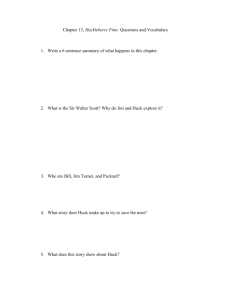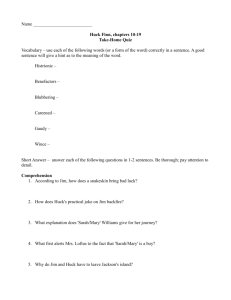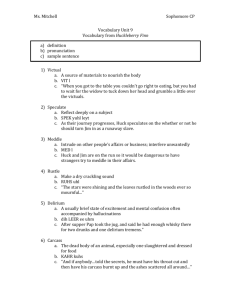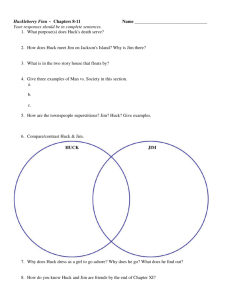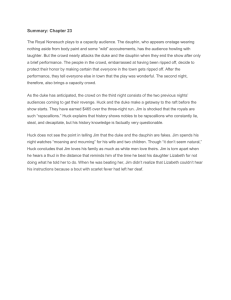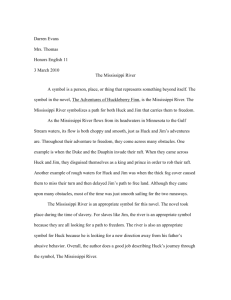Huckleberry Finn Themes: Study Guide & Analysis
advertisement
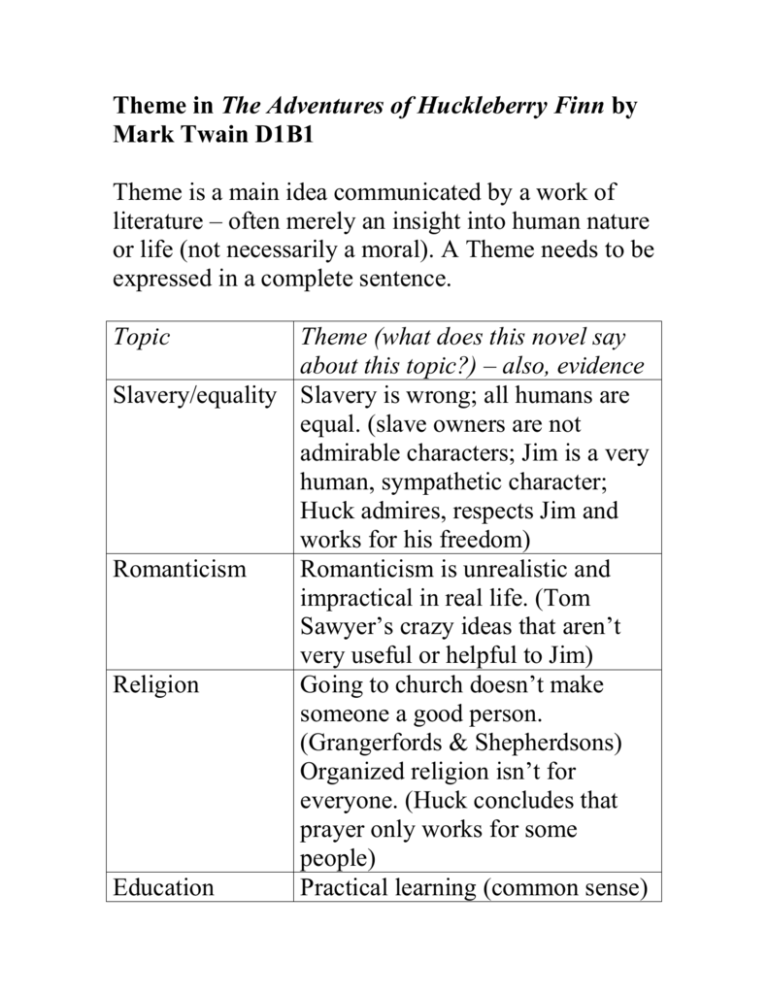
Theme in The Adventures of Huckleberry Finn by Mark Twain D1B1 Theme is a main idea communicated by a work of literature – often merely an insight into human nature or life (not necessarily a moral). A Theme needs to be expressed in a complete sentence. Topic Theme (what does this novel say about this topic?) – also, evidence Slavery/equality Slavery is wrong; all humans are equal. (slave owners are not admirable characters; Jim is a very human, sympathetic character; Huck admires, respects Jim and works for his freedom) Romanticism Romanticism is unrealistic and impractical in real life. (Tom Sawyer’s crazy ideas that aren’t very useful or helpful to Jim) Religion Going to church doesn’t make someone a good person. (Grangerfords & Shepherdsons) Organized religion isn’t for everyone. (Huck concludes that prayer only works for some people) Education Practical learning (common sense) Society Freedom Nature Superstition can be more useful than book learning. (Huck vs. Tom) “Civilized” society is often not very civilized (could be childish, cruel, animalistic, careless). (G&S; shooting of Boggs; slavery) Freedom can mean being free from society’s unfair rules. (Huck & Jim on river, taking only what they need, treating each other kindly) Being in nature and away from society is a way of being free. (Huck & Jim on the river) One must follow one’s own conscience, even when it is difficult. (Jim’s freedom; Huck’s internal conflict) Superstition gives people with little control over their lives a feeling of control/understanding of the forces that affect them. (Jim, Huck, Pap) Superstition can also be used to control someone. (Huck tells Nat there are no dogs)`

